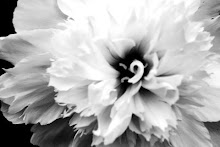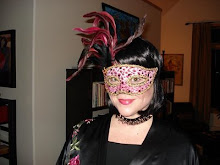For the flower it is fully open at
each step of its blossoming.
~ Mark Nepo
I have a lot of
freckles—I mean everywhere. I have no
idea where they all came from because they weren't there when I was born. But there they are.
For most of my
life I hated my freckles. I dressed to
conceal—a victim in my own skin—while all around me beautiful people with
smooth, freckle-free skin, embraced the world in cute little dresses and sleeveless
tops, showing as much skin as the law would allow. I was too self-conscious to join them.
Then one night at
dinner, my friend Jonathan spotted a patch of freckles peeking from beneath my
shirt sleeve. “Le poins des carrot,” he mumbled to himself, running his finger
over my freckled skin. My French was
rusty, but I could have sworn that he said, “The skin of the carrot?” And he had.
“When you see the
orange skin of a healthy carrot, it is a beautiful thing—the color, the
texture, its richness and vibrancy; the skin of the carrot is beauty
itself. It’s like that with
freckles. The French view them as a sign
of great beauty. And some cultures
believe they’re a sign of great wealth.
Just think how lucky you are—beauty and wealth!” He laughed, “This is your destiny!”
And to think that
all this time I had been trying to cover them up! Yet with a simple shift in perspective all of
a sudden I had the world on a string—beauty and wealth. I laughed so hard I cried.
My freckles looked
different after that. I studied them and
patterns emerged like brilliant constellations in the night sky. I had been an astronomy buff for years,
could it be that my freckles weren’t so random after all? “As above, so below,” they say. And I laughed at the sense of humor displayed
in all of creation.
There are other
things I’ve struggled to reconcile. Like
how hard I’ve had to work to find even the slightest measure of acceptance in
my heart for an extremely difficult family situation; or my growing
disillusionment with a long-held belief as I’ve watched its opposite unfold in
the world around me; or perhaps, worse yet, the horrified amazement with which
I have, at times, viewed my own life in hindsight as I see so clearly how I’ve
gotten in my own way. These are,
perhaps, among the hardest parts to make peace with, especially when we
consider how very different the outcome may have been if only we had done this
or that.
We do ourselves a
great disservice when we judge ourselves so harshly. For aren’t we always where we need to
be? Perhaps that’s why they say that struggle
is sometimes necessary but always optional.
In the end,
reconciliation is an inside job. Without
it, our contempt of a thing creates obstacles to our own happiness. So we best make peace; learn how to soothe
ourselves and move beyond the suffering in our lives. Because when we are reconciled with that
truth, all self-love and acceptance, there is freedom at last.








.jpg)



